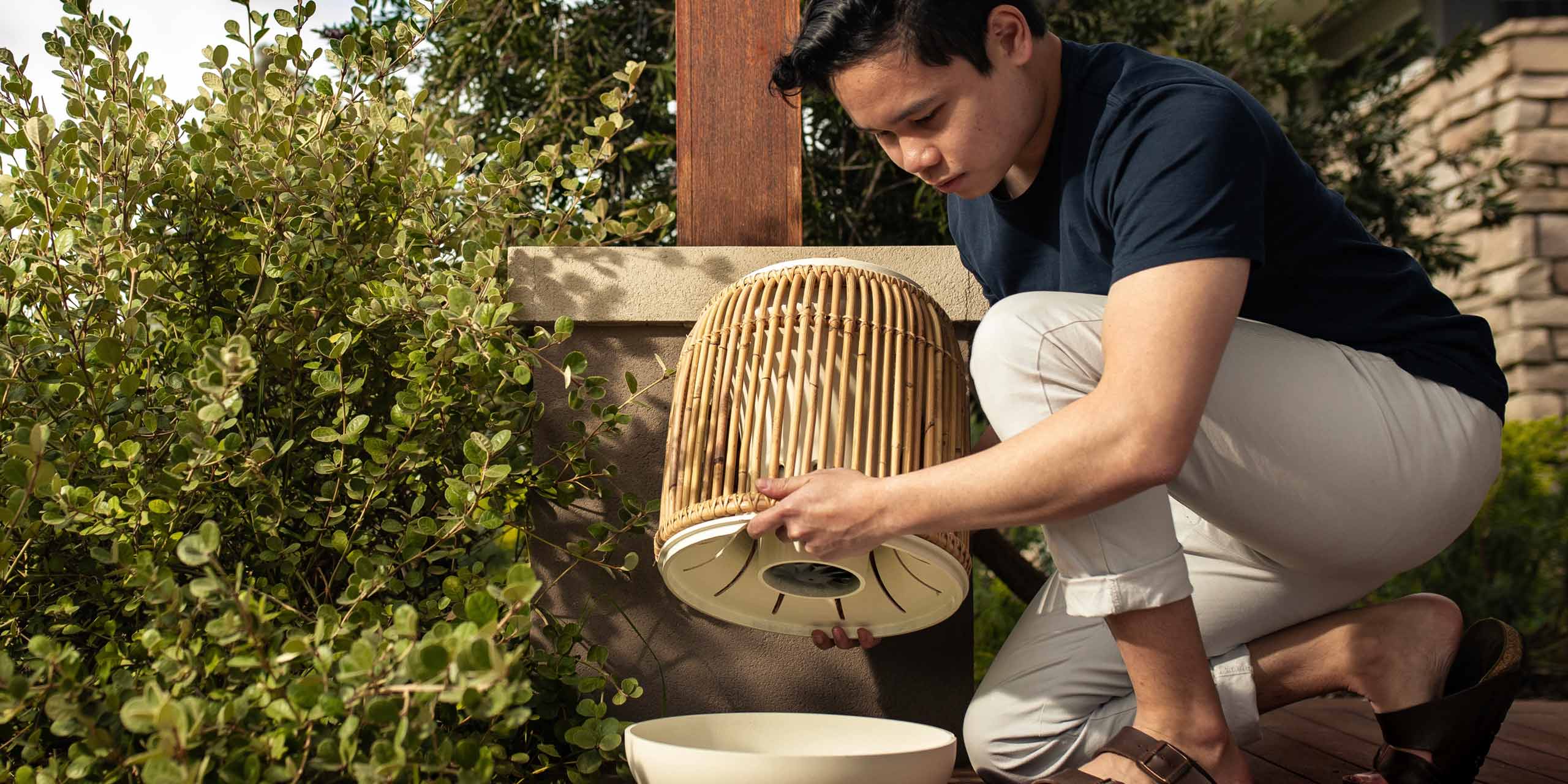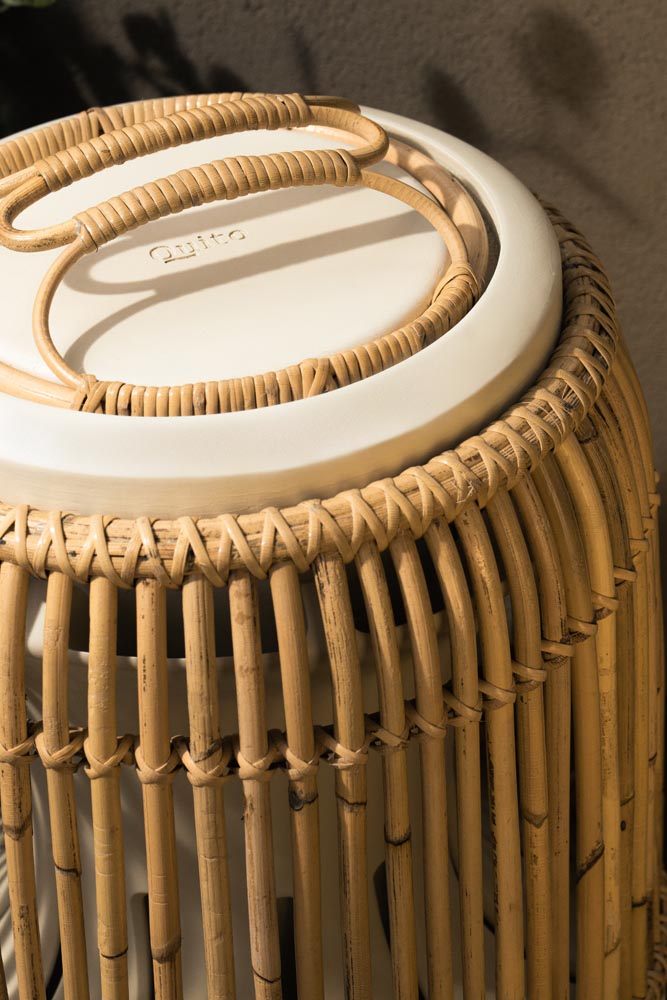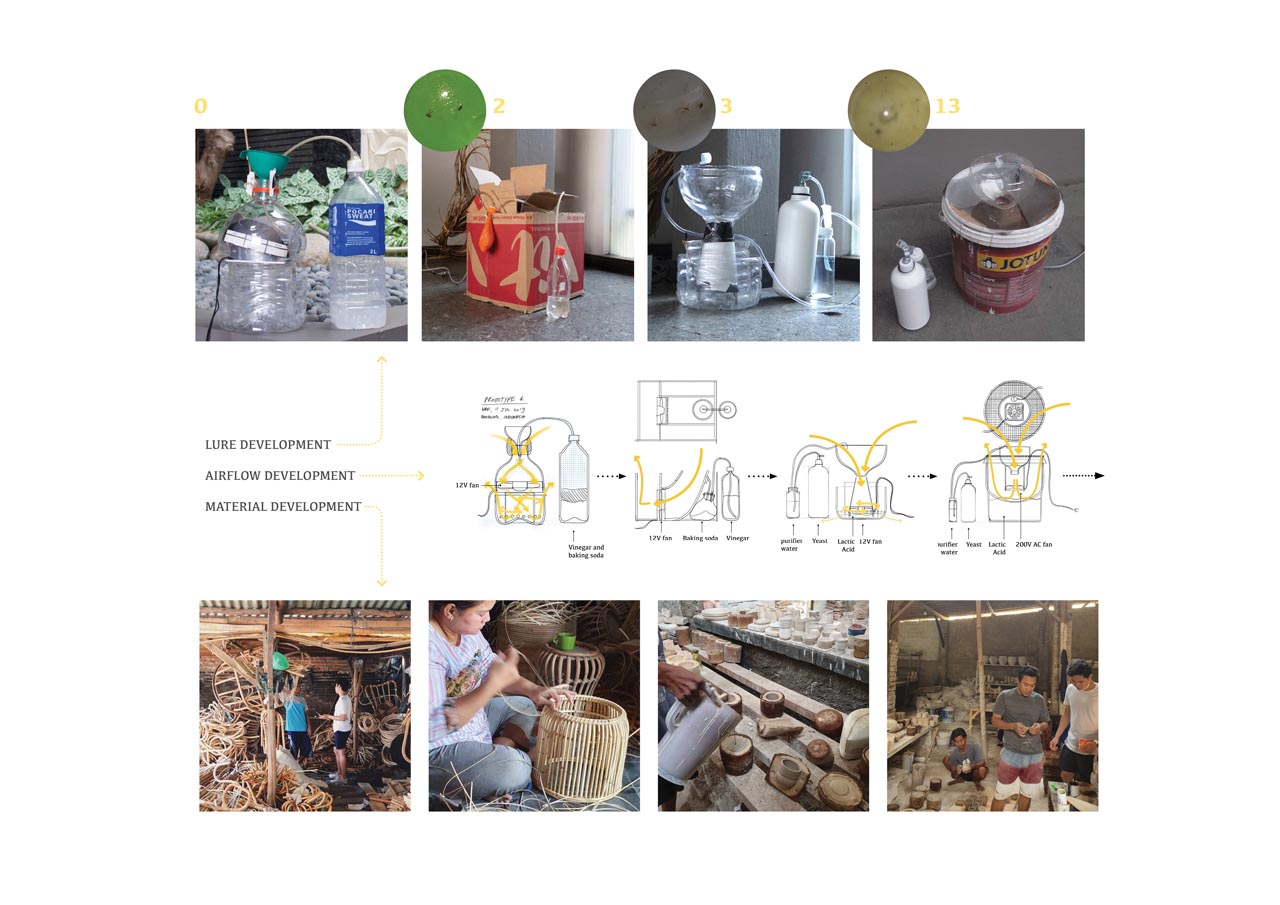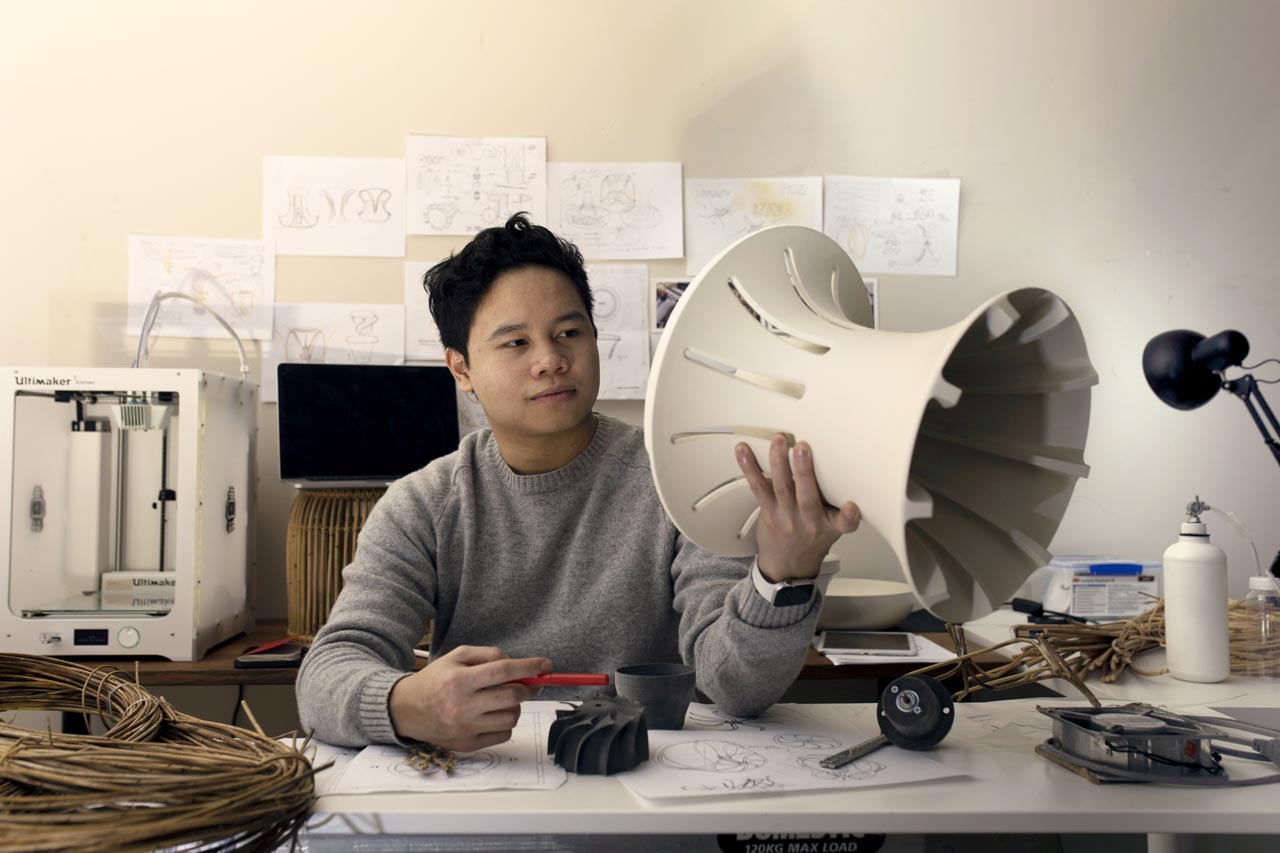For context, a resort village of Canggu in Bali with an area of 6 km2 is 70% covered in rice paddies, an ideal breeding ground for mosquitoes. The remaining hosts more than 2,200 villas with private pools, cramming thousands of international travellers in a density of a Jakarta slum, a vulnerable starting ground for a pandemic.
With the current solution dominated by toxic mosquito coil and disruptive fumigation, Quito provides a sustainable and culturally appropriate alternative to this vulnerable user group. Its scientifically proven technology combined with its informed material selection ensure an aesthetic fit and competitiveness to other solutions.






